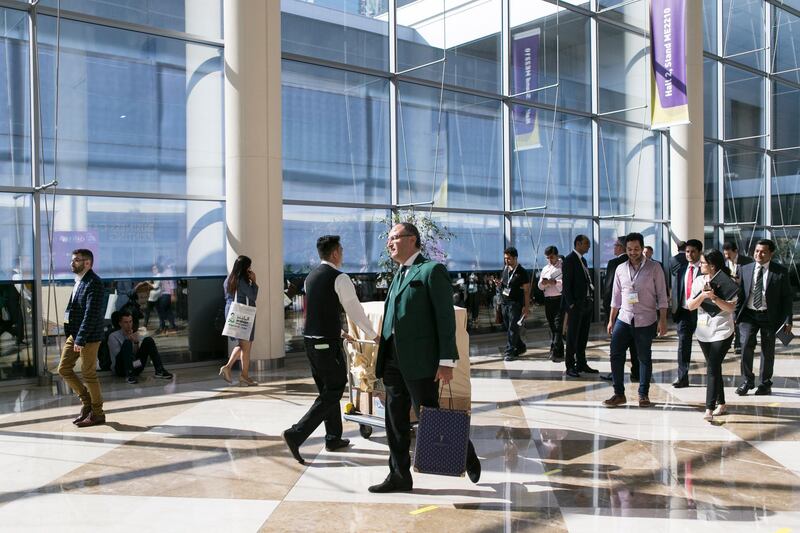Dubai World Trade Centre (DWTC), a commercial free zone in the emirate, is slashing licensing and incorporation fees for businesses by up to 70 per cent, joining the other commercial hubs in efforts to boost foreign investments inflows into Dubai.
Managed by DWTC Authority, the free zone next to Dubai International Financial Centre at the heart of the emirate’s central business district will see a reduction of 50 to 70 per cent on registration and licensing fees for companies, DWTC said on Monday. Depending on the size of the business, immigration-related service fees will be reduced by 40 to 50 per cent, it said.
“DWTC’s commercial propositions are designed to support the government’s mandate on reducing fees to scale down the cost of doing business for the private sector and to offer a viable ecosystem that supports sustainable, long-term success,” said Helal Saeed Almarri, the director general of DWTCA. “The significant reductions ... will collectively increase the competitiveness of, and the ease of doing business within the DWTCA free zone.”
The move will lower the fixed and ongoing expenses of doing business for new and existing companies, enhancing the rate of return for free zone incorporated entities. The revised fee structure is an added incentive for the larger scale companies to relocate their headquarters to Dubai, the commercial and trading hub of the broader Middle East region.
DWTC is the latest among the free zones in the emirate to join the government's push to make Dubai more competitive and attractive to businesses. Dubai Free Zones Council (DFZC), the body representing the emirate’s 30-plus economic free zones, which include DIFC, Dubai Internet City and others, is ramping up efforts to boost FDI by easing business registration fees and introducing new regulations to support e-commerce.
______________
Read more:
Dubai free zones unite to boost foreign investment flows
UAE foreign ownership changes will boost FDI, spur economic growth
Sheikh Mohammed announces sweeping changes to UAE's visa system
VAT in UAE: 20 free zones told they are exempt from levy
______________
DFZC last month said it is creating a centralised electronic system to streamline licensing procedures across all Dubai free zones, and store records in a dedicated data centre. Several other free zones had also lowered registration fees in recent months, it said at the time, adding that a mechanism had been proposed for helping free zone companies secure "no objection" certificates from government more quickly.
Mr Almarri on Monday said the commercial incentives deployed by DWTCA presented an “incredibly compelling opportunity for businesses to accelerate their growth trajectory and their geographic reach”.
The UAE, the second-largest Arabian Gulf economy, recorded $10.3 billion of inward foreign direct investment (FDI) in 2017, up 6.7 per cent from $9.6bn in 2016, according to the Federal Competitiveness and Statistics Authority.
It is currently ranked a17 out of 137 countries, according to DWTC, and continues to lead the Arab world in terms of competitiveness, rising seven places over its 24th ranking in 2012-13.
Efforts to increase FDI are part of broader measures to boost the contribution of the non-oil sector to the UAE economy to 80 per cent by 2021, from the current 70 per cent, following sluggish economic growth on the back of low oil prices.







